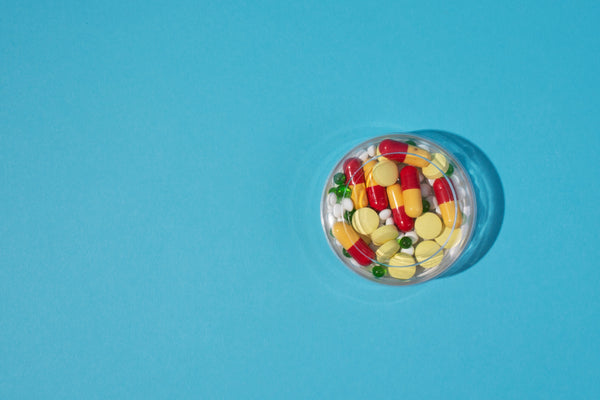Did you know that the gut is at the core of our health and wellbeing? Trust your gut instinct on this! The gut is where the food is digested and nutrition is absorbed for all vital functions of the body. To stay healthy and strong, adopting good eating habits and exercise to maintain gut microbiome is essential. We must include foods that aid digestion and keep gut disorders at bay.
How does good digestion ensure a healthy and efficient gut?
Let’s get to know more and learn 5 ways to speed up digestion and improve gut health.
1. Eat natural whole food
Nature offers the best nutrition for our body through real whole foods. Including a variety of fresh fruits and vegetables along with rich sources of protein like eggs, poultry, fish and meat could efficiently meet nutrient requirements of our body. Studies show the adverse effects of consuming processed foods rich in saturated fat, carbohydrates, salt and additives on digestive function.
Foods rich in trans-fat and artificial taste enhancers can damage gut health in more ways than one. Conditions like acid reflux, bloating and constipation are often the result of poor eating habits.
Consuming foods like low-calorie aerated drinks and ice creams, which contain artificial additives, can increase the number of harmful bacteria in the gut leading to inflammation, diarrhea, ulcers, Irritable Bowel Syndrome (IBS), and the like. According to research, eating food in its natural form boosts digestion and provides better nutrition for the body. Hence, it is very important to include fresh natural foods to your daily diet.
2. Fibre for Faster Digestion
The natural fibre in whole foods provides the necessary bulk, which improves digestion and bowel movements. There are two kinds of food fibre – Soluble and Insoluble fibres. Foods like oat bran, legumes, nuts and seeds, carrots, beans, and citrus fruits are fibre-rich foods that must be included in one’s daily diet to speed up digestion and enhance gut function. Insoluble fibre can be obtained from foods like wheat gram, whole grains like brown rice, moringa, and the like. It helps in keeping the digestive tract clean and toxin-free. A high-fibre diet can help reduce intestinal inflammation and prevent conditions like ulcers, hemorrhoids, and refluxes. Some fibrous foods like apples are natural prebiotic sources, which help in improving gut bacteria and maintain gut microbiome balance– all of which are necessary for faster digestion.
3. Adequate Hydration
Our body needs water for optimal functioning of all vital organs and processes. Drinking adequate water everyday helps the gut in maintaining the required Ph balance and digestive function. Low fluid intake is the main reason behind digestive disorders like constipation and acidity. This leads to aggravated conditions like Irritable Bowel Syndrome (IBS) and poor digestion that adversely impacts overall health. Water, herbal teas, and real juices must be consumed daily to meet the hydration levels in the body. Fruits and vegetables that have high-fluid content like, cucumber, watermelon, bottle gourd, grapefruit, tomatoes, celery, and all can be consumed to more than make up for one’s hydration loss.
4. Say yes to healthy fats followed by workout
Healthy fats like omega 3 fatty acids are essential nutrients needed for healthy gut health. Adequate fat intake improves the absorption of some fat-soluble nutrients. Rich sources of omega-3 fatty acids are flaxseeds, walnuts,chia seeds, fatty fish like sardines and mackerel- all of which help reduce inflammation that may prevent inflammatory bowel diseases.
If you are worried about the calories showing on your weighing scale, you can always burn them out through your favorite exercises. Studies show that simple exercises like walking and jogging get the food moving in your digestive tract and speed up the process of digestion and nutrient absorption. Working out regularly boosts metabolism and improves digestion, which helps in increasing energy levels as well as stamina.
5. Prebiotic and Probiotic Foods
Probiotic foods increase the population of good gut bacteria and prebiotic fibres provide the food for the bacteria. Both are needed to improve digestive health and maintain a balanced gut microbiome. Studies prove the vital role that both prebiotics and probiotics play for a healthy gut. The good microbes of the gut are required for carrying out metabolic, digestive, and immune functions. Probiotics are foods or supplements that contain beneficial bacteria or yeast that help to restore the composition of gut microorganisms and their beneficial functions.
Prebiotics are undigested tough carbohydrates and natural sugars, which are used as food by the gut bacteria. This food strengthens the healthy bacteria in the gut and helps in maintaining its population which fights off disease-causing harmful bacteria.
Foods like curd, fermented milk, sour pickles, sauerkraut and soft cheeses are good natural probiotic foods. Prebiotic foods like bananas, apples, almonds, chicory root, garlic, and chickpeas provide dietary fibre, which are needed by the gut bacteria to improve digestive function.
We recommend you two daily supplements by Wellbeing Nutrition, which can help you get a healthy gut and digestive balance. Probiotic + Prebiotic effervescent tablets and Healthy Gut Melts by Wellbeing Nutrition are two such revolutionary daily supplements that can provide essential gut nourishment and improve digestive health.
6. Probiotic + Prebiotic
An active blend of 6 probiotic cultures containing 36 billion colony forming units (CFU) per serving, Probiotic + Prebiotic by Well Being Nutrition is the best supplement you can take to improve your digestive health. It contains prebiotic fibers from apple pomace and chicory root that provide food for the good bacteria in your gut. This formulation is made using delayed releasing nanotechnology that ensures zero loss of gut nutrients and prolonged survival of probiotics against stomach acid.
7. Healthy Gut Melts
Naturally extracted probiotics, ACV and plant-based enzyme blend help prevent digestive issues to give you a happy and healthy gut. Now with this product bid your goodbyes to bloating, stomach pain, acidity, stomach gas problems, indigestion or IBS with each strip of Healthy Gut melts.
Final Takeaway
A healthy and happy gut translates to a healthy and happy you! Besides good eating habits and a regular exercise regime, it is very important to reduce stress in your life to keep digestive health on track. Studies have shown the interrelation of the brain and gut. Stressful conditions impact digestive health adversely and lead to gut disorders. Daily practices like yoga, meditation, listening to music, coupled with digestion-aiding foods can truly help you achieve digestive equilibrium and shoo away those long standing stomach issues.
References
Wölnerhanssen BK, Cajacob L, Keller N, et al. Gut hormone secretion, gastric emptying, and glycemic responses to erythritol and xylitol in lean and obese subjects. Am J Physiol Endocrinol Metab. 2016;310(11):E1053-E1061. doi:10.1152/ajpendo.00037.2016
Didari T, Mozaffari S, Nikfar S, Abdollahi M. Effectiveness of probiotics in irritable bowel syndrome: Updated systematic review with meta-analysis. World J Gastroenterol. 2015;21(10):3072-3084. doi:10.3748/wjg.v21.i10.3072
Effects of a high fat diet on intestinal microbiota and gastrointestinal diseases
Mei Zhang, Xiao-Jiao Yang
World J Gastroenterol. 2016 Oct 28; 22(40): 8905–8909. Published online 2016 Oct 28. doi: 10.3748/wjg.v22.i40.8905
PMCID:
PMC5083795
Article PubReader PDF–814KCite
De Palma G, Collins SM, Bercik P, Verdu EF. The microbiota-gut-brain axis in gastrointestinal disorders: stressed bugs, stressed brain or both?. J Physiol. 2014;592(14):2989-2997. doi:10.1113/jphysiol.2014.273995
Effects of probiotics on gut microbiota: mechanisms of intestinal immunomodulation and neuromodulation
Peera Hemarajata, James Versalovic
Therap Adv Gastroenterol. 2013 Jan; 6(1): 39–51. doi: 10.1177/1756283X12459294
PMCID:
PMC3539293
Article PubReader PDF–9.0MCite

























